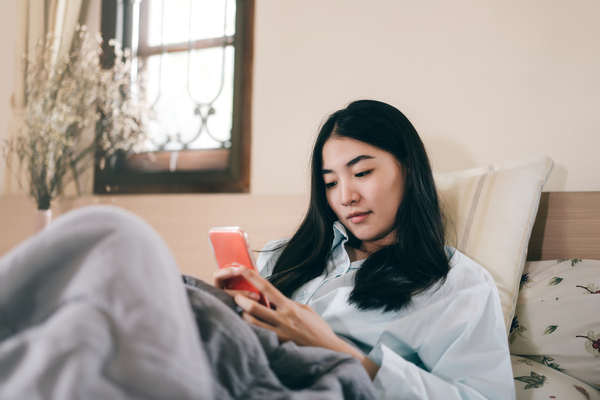Whether you’re chatting face to face or on the phone, your voice can say a lot about you, and apparently that includes your mental health.
A CDC study looked at the mental health of 800,000 Americans, starting in the summer of 2020 through earlier this year. The study found nearly 2 in 5 adults (about 42%) had symptoms of depression or anxiety. That is up from 36% measured at the start of the study. Young adults were especially affected, with 57% of those between the ages of 18 and 29.
“This was a problem before the pandemic. The pandemic has only exacerbated that problem,” said David Liu, who is CEO of Sonde Health. As mental health issues emerged during the pandemic, Liu’s company developed the free Sonde Mental Fitness app. It starts by taking a 30-second sample of your voice.
“The app will prompt you with a very simple question, such as ‘How is your day going? What’s on your mind?’ Something very open-ended,” Liu explained. Then, after speaking, it analyzes your voice sample for signs of depression, looking at six different vocal features. “We know that through these specific features, such as smoothness or control, we’ll give you give us an indication of whether or not your voice, again these vocal features, are in the normal of range or not,” he said.
Several studies done over the years by the National Institutes of Health examined the link between voice and depression. They show that there appears to be a correlation between the two. “There are very specific nuances within the human voice that are able to be picked up on in these vocal biomarkers that allow them to really hone in on changes that occur when someone is dealing with some sort of mental or physical stress,” said Lindsey Venesky, a licensed psychologist with the Cognitive Behavior Institute near Pittsburgh.
They recently conducted a pilot study with several dozen patients using the app. “We really like the objectivity of the app because there is not a way that clients can really adjust their voice sample, in order to be able to swing the results one way or the other,” Venesky said.
She added that some patients found themselves surprised by the results. “Interestingly, some of them even provided feedback to clients who thought they were doing pretty well and their score was lower,” Venesky said. “And they weren’t sure why, until we were able to kind of dive in deeper and like, ‘Oh wow, I guess I had a lot more weighing on me this week that I realized.’”
It’s a mental health awareness which David Liu hopes people will choose to tap into. “We really think that this is the right way to be able to attack and get the awareness and get people activated, not only to talk about mental health, but to act on it,” he said.
The app’s developers say privacy is a top priority and any information a person shares in it will remain confidential unless they choose to share with a mental health provider.
—
Photo Credit: dodotone / Shutterstock.com
